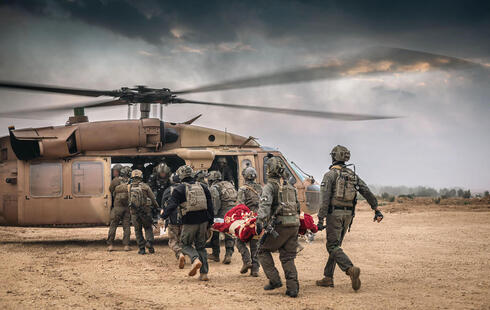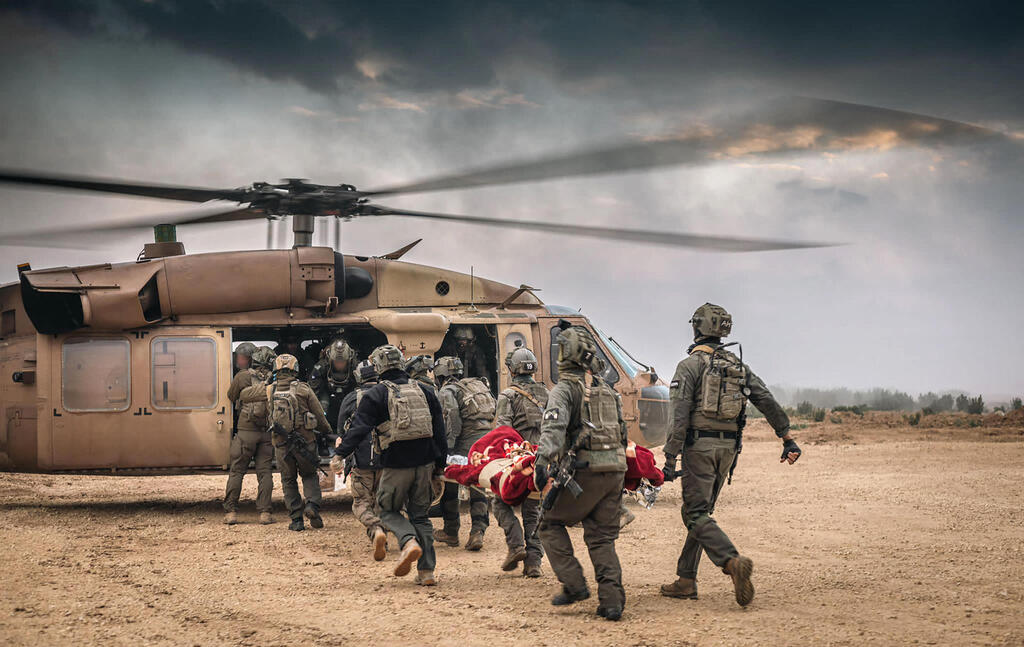
High-tech companies open doors to wounded IDF veterans
The tech industry is offering new opportunities to injured IDF veterans through specialized programs.
Before he was injured in Lebanon, Tzachi, a 42-year-old father of three, was a renovation contractor with a thriving business. On October 7, despite already being discharged from reserve duty, he voluntarily enlisted in the north to serve as a battalion liaison officer. A week into his service, he was injured in his legs during a rescue operation involving one deceased and three wounded individuals, during which he witnessed distressing scenes.
"After I was discharged, I started experiencing difficulties relating to those around me," he shares. "My wife insisted I seek help, and that’s when I realized I was suffering from post-traumatic stress disorder (PTSD). I began having severe anxieties—situations with excessive noise, crowded spaces, or hearing Arabic speakers triggered panic attacks, rendering me unable to function. This had a tremendous impact on my personal life and especially my profession. I realized I could no longer continue working as a contractor due to the stress caused by the noise of machinery and interactions in environments that reminded me of my trauma."
1 View gallery


Soldiers from Unit 669 evacuate wounded wounded in the Gaza Strip
(Photo: IDF Spokesperson Unit)
Reflecting on his decision to enlist, he adds, "On October 7, I didn’t think twice. Despite my wife’s strong opposition, I packed my gear and headed north, knowing this was the moment we had trained for all these years. To say I don’t pay dearly for it? That would be a lie. I nearly lost my family, my social circle, and my career."
Realizing he could not return to his previous occupation, Tzachi came across an advertisement for the Atidim Association’s program through the Ministry of Defense’s Rehabilitation Division. The program offers a high-quality engineering degree in a 17-month course, leading to new career opportunities. He decided to enroll. "I had the opportunity to join the Atidim program and eventually began working at IAI, an environment that felt safe for me. This was a crucial part of my rehabilitation," he explains. Graduates of the program are integrated into leading companies with guaranteed placements, providing them with a clear career path.
For Nir Eliyahu, a 23-year-old former team commander in a paratrooper unit, the transition was equally profound. On October 7, he was critically injured at the Nahal Oz outpost. "That morning, I rushed to a rescue operation and was injured later that evening," he recounts. "I was sedated and ventilated for a while. During the first few months of rehabilitation, I was determined to return to active duty. But eventually, I realized that would not be possible and began looking for roles where I could continue contributing meaningfully."
Nir discovered the Atidim Association’s "Warriors for High Tech" program, which supports veterans in transitioning to technology careers. The program includes intensive "bootcamp" training and job placements at high-tech companies. He is currently training to become a product manager. "We are 19 former combatants, many of whom were commanders or officers. The program not only educates us but also provides practical experience for a year and a half, preparing us to enter civilian life with valuable knowledge and skills," he says.
Nir’s injuries, including damage to his stomach and left hand, significantly altered his career path. "The hardest part has been adjusting from the fast-paced, physical roles I was used to, to a slower, unfamiliar world of studies and technology. But I am determined to adapt and succeed," he states.
Since October 7, over 70,000 victims of hostilities and 12,000 wounded IDF soldiers have been added to Israel's already significant disabled population. This includes thousands of individuals with physical and mental injuries, many of them young adults facing immense challenges in rebuilding their lives. "The academic system is not fully equipped to accommodate them, and many struggle to resume normal life—whether in education, work, relationships, or starting families," notes Oren Helman, founder of the Equal Chance initiative. Helman criticizes discriminatory laws and societal stigmas, emphasizing the need for better accessibility and inclusivity.
Amid these challenges, many high-tech companies are stepping up to provide opportunities for disabled individuals and reservists returning from the frontlines. "Reintegrating wounded veterans into the workforce is both a national mission and an economic necessity," says Chaim Geron, co-CEO of Infinity Labs R&D. He advocates for professional training programs that align with veterans’ skills and create meaningful roles.
Companies like Amdocs are leading the way with initiatives such as "Tech for All," which integrates individuals with "invisible disabilities," including PTSD, into technological roles. "Accommodations like mentorship, group support, and tailored training are key to ensuring their success," explains Nira Erez, who oversees the program.
Creating accessible workplaces is crucial for the success of such programs. Whether it involves physical modifications for visually impaired individuals or emotional support for those with mental health challenges, companies are finding innovative ways to foster inclusivity. "With the right accommodations, people with the potential to excel can achieve remarkable success," Erez concludes.













